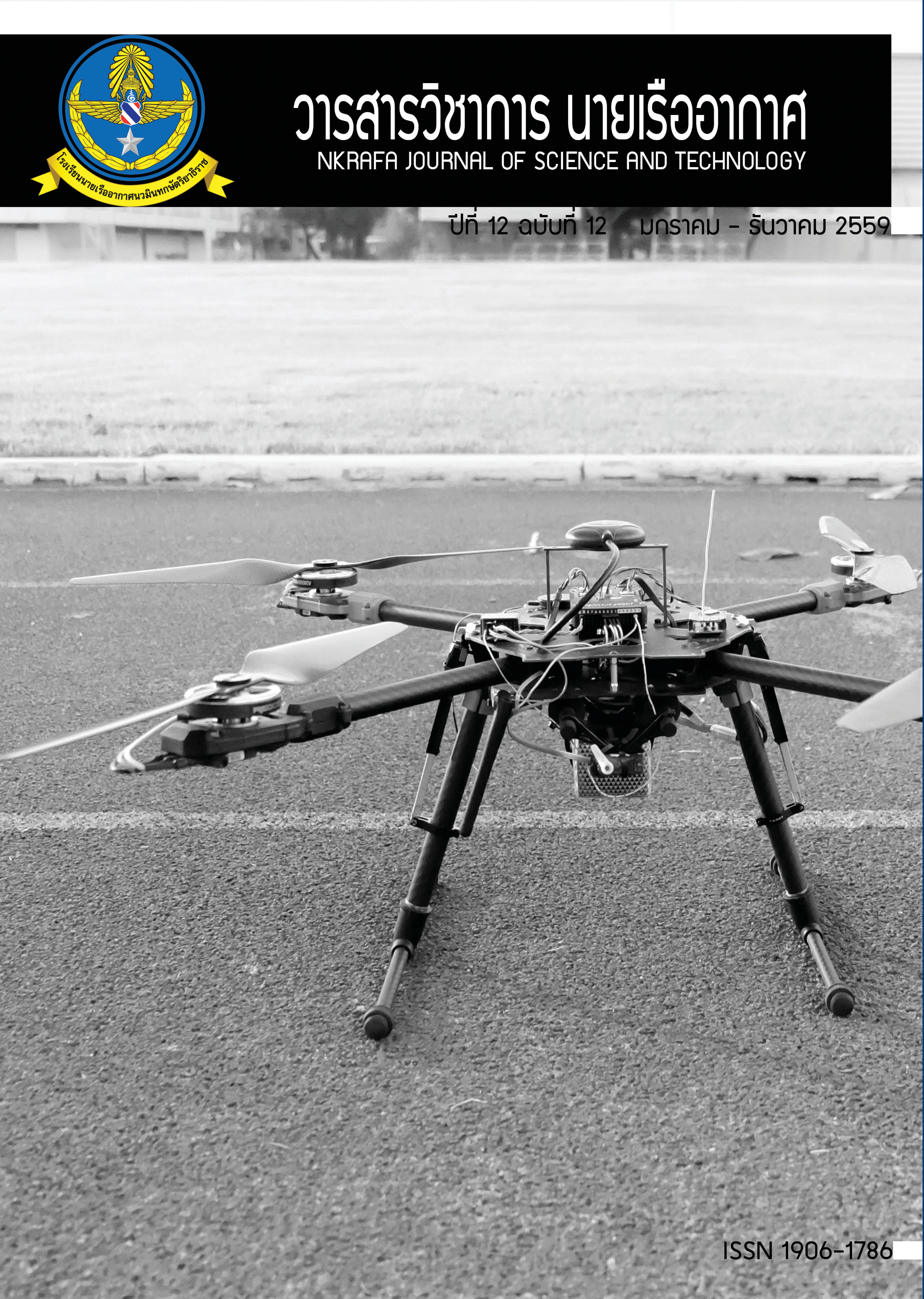A PSO-based Optimum Design of PID Controller for Anti-lock Braking System
Main Article Content
Abstract
The use of so-called computational intelligent techniques: Genetic Algorithms (GA), Ant Colony Optimization (ACO) and Particle Swarm Optimization (PSO) in advanced industrial process controls is nowadays well established. The main objective of this research is to propose the use of Particle Swarm Optimization technique, which is easy to use, highly stable convergence and as well as highly computational efficiency, for tuning of PID controller which regulates the wheel slip in Antilock Braking System (ABS). The PSO searches for the control gains kp (proportional gain), ki (integral gain) and kd (derivative or differential gain) which based on the desired closed-loop control response. The control algorithm is then applied to a ¼ car ABS model. The simulations are performed by using a commercial software package of purpose to test the braking performance from the customized controllers. By comparing Ziegler-Nichols Technique and the Bang Bang-controller, the effects of shock resistance from a brake pedal pulsations and the stopping distance are minimized. Furthermore, the friction coefficient between wheels and road surface can be maintained at maximum value. This is to confirm that the PSO-based optimum designed PID controller can be effectively performed for Antilock Braking System.
Article Details
- Content and information in articles published in NKRAFA Journal of Science and Technology are comment and responsibility of authors of articles directly. Journal editorial do no need to agree or share any responsibility.
- NKRAFA Journal of Science and Technology Articles holds the copyright of the content, pictures, images etc. which published in it. If any person or agency require to reuse all or some part of articles, the permission must be obtained from the NKRAFA Journal of Science and Technology.
References
[2] P.E. Wellstead and N. Pettit. Analysis and Redesign of an Antilock Brake System Controller. IEE Proceedings Control Theory Applications, 144(5): 413-426, 1997.
[3] A.G. Ulsoy and H. Peng. Vehicle Control Systems. Lecture Notes, ME 568, 1997.
[4] T. Fu. Modeling and Performance Analysis of ABS System with Nonlinear Control. Master’s thesis, Concordia University, Montreal, Quebec, Canada, 2000.
[5] A.A. Aly et al. An Antilock-Braking Systems (ABS) Control: A Technical Review. Intelligent Control and Automation, 2: 186-195, 2011.
[6] Q. Ming. Sliding Mode Controller Design for ABS System. MSc Thesis, Virginia Polytechnic Institute and State University, 1997.
[7] J. Song, H. Kim and K. Boo. A study on an Anti-Lock Braking System Controller and Rear-Wheel Controller to Enhance Vehicle Lateral Stability. Proceedings of the Institution of Mechanical Engineers, Part D: Journal of Automobile Engineering, 221(7): 777- 787, 2007.
[8] A. Mirzaei, M. Moallem, B. Mirzaeian Dehkordi and B. Fahimi. Design of an Optimal Fuzzy Controller for Antilock Braking Systems. IEEE Transactions on Vehicular Technology, 55(6): 1725-1730, 2006.
[9] D.K. Yadav. Modeling an intelligent Controller for Antilock Braking System. International Journal of Technical Research and Applications, 3(4): 122-126, 2015.
[10] C.M. Lin and C.F. Hsu. Self-Learning Fuzzy Sliding-Mode Control for Antilock Braking Systems. IEEE Transaction on Control Systems Technology, 11(2): 273-278, 2003.
[11] D. Xue et al., Linear Feedback Control. Society for Industrial and Applied Mathematics. 1st Ed, February 2008.
[12] S.S. Rao. Engineering Optimization Theory and Practice. 4th Ed., John Wiley and Sons, 2009.
[13] S.J. Bassi et al. Automatic Tuning PID Controller Using Particle Swarm Optimization (PSO) Algorithm. International Journal of Artificial Intelligence and Applications, 2(4), 2011.
[14] J.Kennedy and R.C. Eberhart. Particle swarm optimization. In Proceedings of IEEE International Conference on Neural Networks: 1942-1948, 1995.
[15] Y.H. Shi and R.C. Eberhart. A modified particle swarm optimizer. In Proceedings of IEEE International Conference on Evolutionary Computation: 69-73, 1998.

